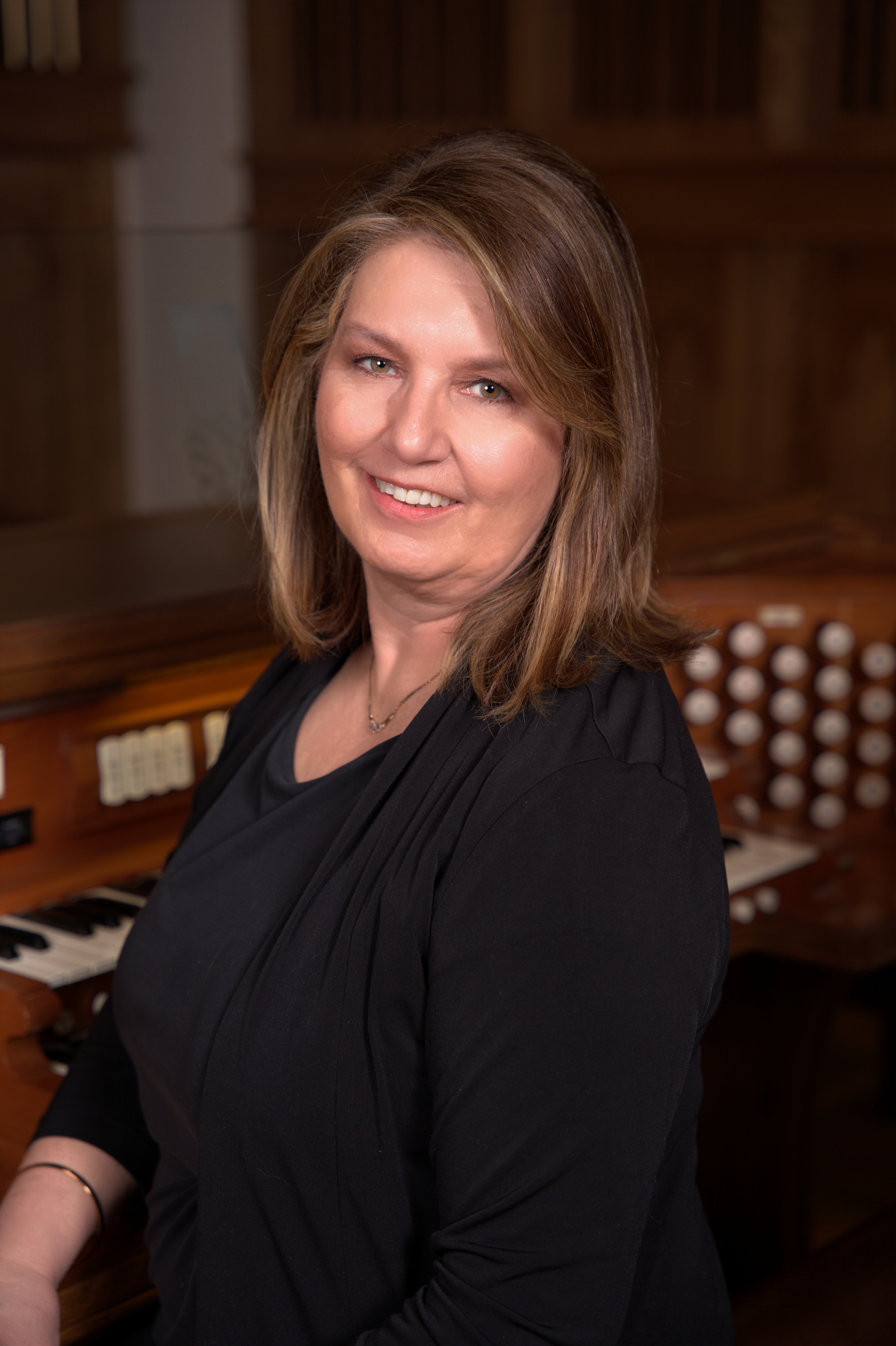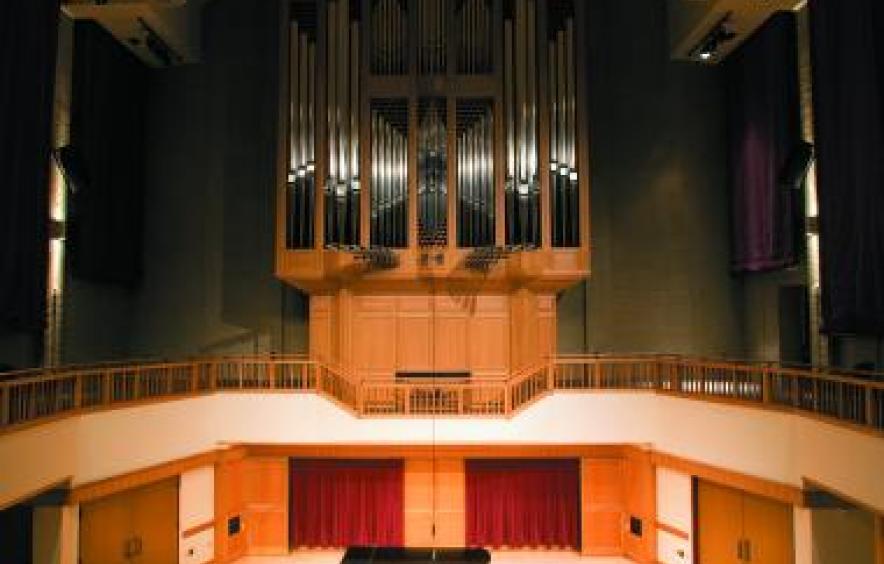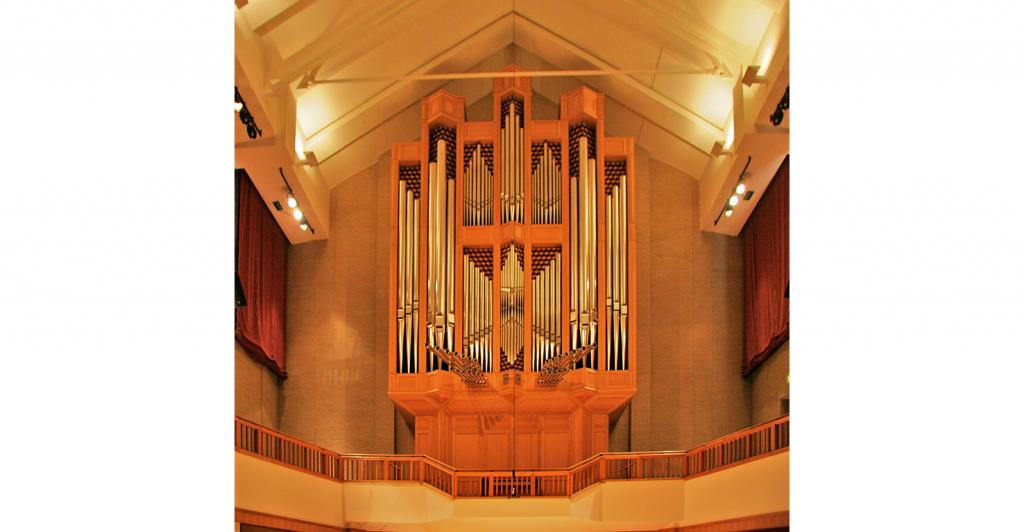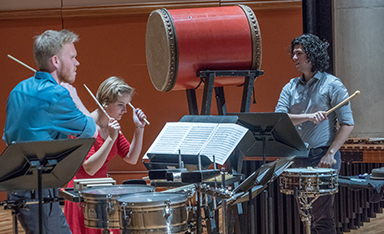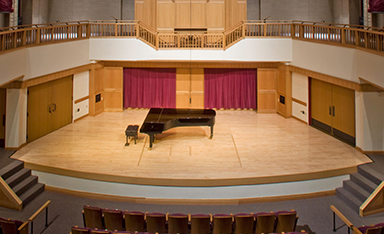Studying Organ at Lamont
At Lamont, organ students have the rare privilege of practicing and performing on one of the finest instruments in the country: a 56-rank, 3,000-pipe Schuke Orgelbau Berlin organ, built in Germany and housed in the acoustically stunning Hamilton Recital Hall. This exceptional instrument, designed specifically for the space it now commands, serves as the heart of organ study at Lamont.
As an organ student, you’ll receive a key to Hamilton Recital Hall, granting you personal access to this world-class organ whenever the space is not in use. In addition, you’ll have access to a dedicated organ practice room to support your daily development.
Your weekly schedule will center around personalized instruction in private lessons with Professor Cindy Lindeen-Martin, along with a rich curriculum designed to develop your artistry and professional readiness. You’ll participate in keyboard performance class, where you’ll perform regularly, give and receive constructive feedback, and work closely with Lamont’s full team of keyboard faculty. Courses in organ pedagogy and repertoire will broaden your knowledge of the instrument’s vast literature while equipping you with essential teaching skills. You’ll also gain valuable collaborative experience, preparing you to work confidently with vocalists, instrumentalists, and ensembles in a variety of settings.
Whether you're preparing for a career in performance, church music, teaching, or all of the above, Lamont’s organ program offers the individualized support, exceptional resources, and high-level performance opportunities to help you thrive.
